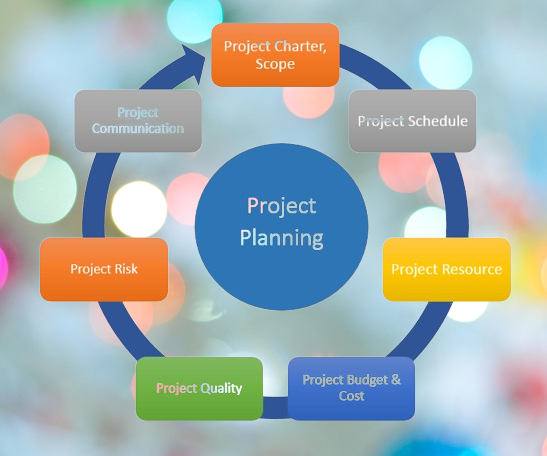
The functions of project management involve a set of activities and tasks that project managers must perform throughout the project lifecycle to successfully plan, execute, monitor, control, and close projects. Here are the main functions of project management:
Project Initiation: This involves defining the project objectives, goals, and scope. It also includes identifying stakeholders, assessing risks, and creating a project charter.
Project Planning: This function involves creating a detailed project plan that outlines project scope, objectives, deliverables, schedules, budgets, and resources. It also includes identifying project risks and creating a risk management plan.
Project Execution: This function involves putting the project plan into action, assigning tasks to team members, and ensuring that project work is completed according to schedule and within budget.
Project Monitoring and Control: This function involves tracking project progress, identifying and addressing project issues and risks, and making changes to the project plan as needed to keep the project on track.
Project Closure: This function involves completing project work, obtaining project approval from stakeholders, and archiving project documentation.
Throughout these functions, project managers must use their communication, leadership, problem-solving, and decision-making skills to keep the project team and stakeholders informed, motivated, and engaged. Effective project management requires careful planning, coordination, and execution to achieve project goals and objectives on time and within budget.
This article is shared by https://www.itechscripts.com/quality-control/ | A leading resource of inspired clone scripts. It offers hundreds of popular scripts that are used by thousands of small and medium enterprises.